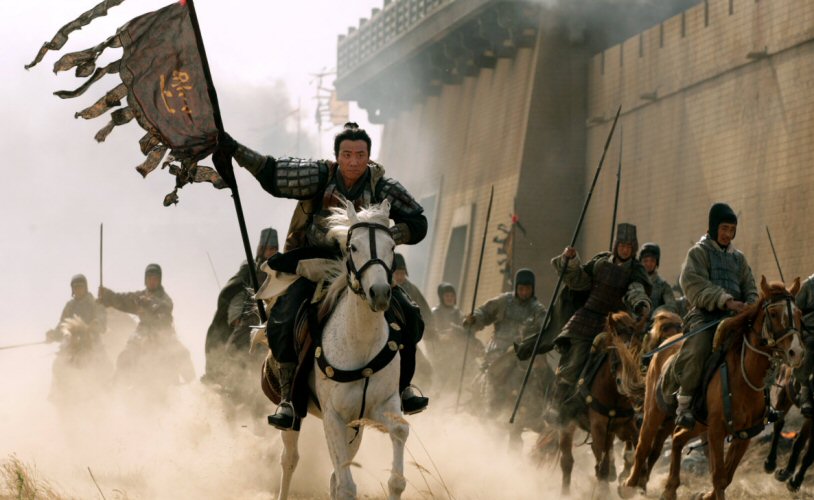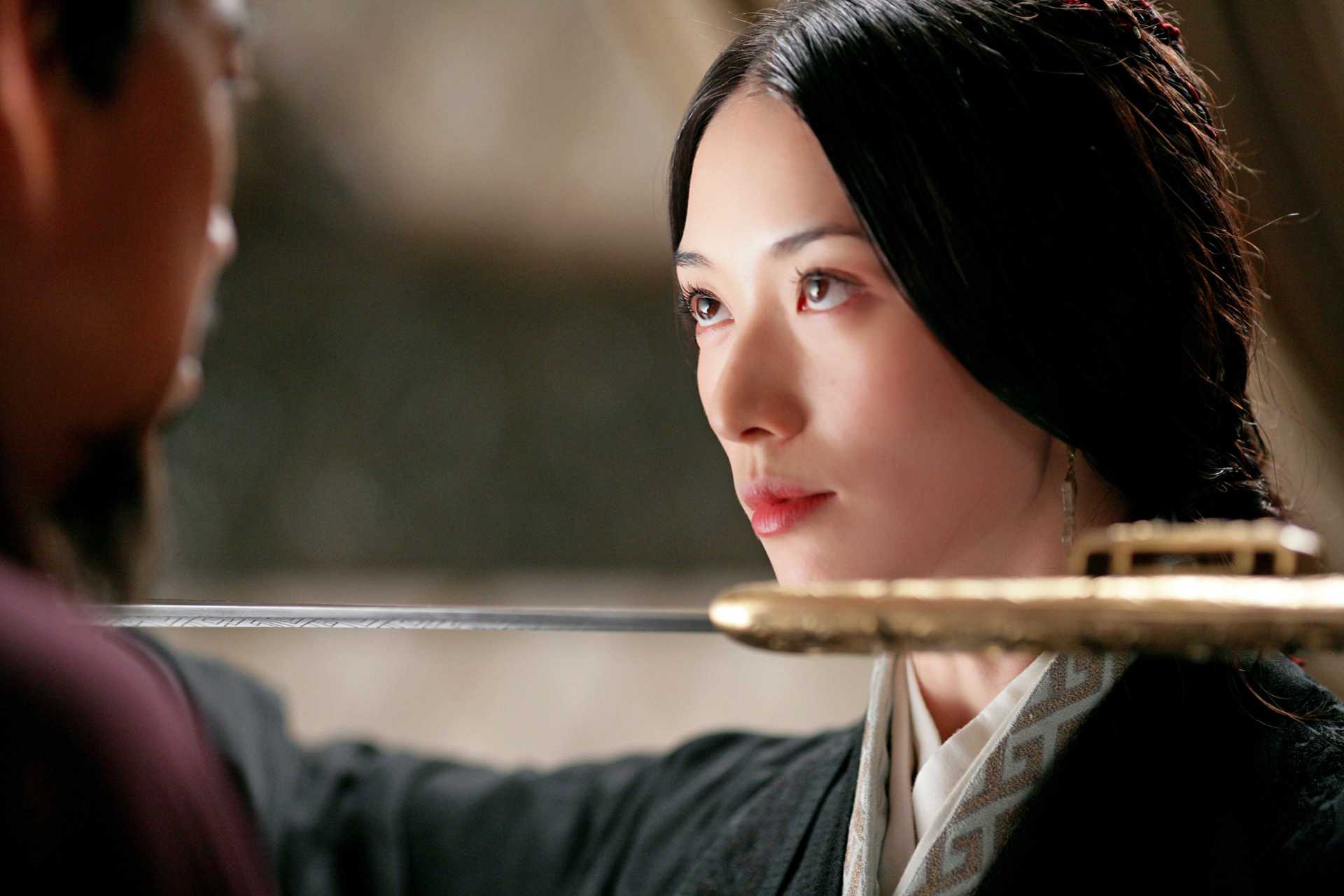After a string of
unfortunate Hollywood films (Paycheck, Windtalkers,
Mission Impossible II) slow-mo action master John Woo returns
to his native China in the grand epic Red Cliff. Originally
released in two parts in Asia, the four and a half hour total running
time was butchered down to two and a half on general international
release. Both editions have been released locally on DVD and Blu-ray,
but it's the full full original cut that I will be reviewing here.
The film is an exciting, thunderous and broad retelling of the titular
Battle of Red Cliffs that occurred near the end of the Han Dynasty,
circa 220 AD. Drawing upon the historical text Records of Three
Kingdoms rather than the further interpretation offered in the
Chinese classic novel Romance of the Three Kingdoms, Woo claims
that it offers a more historically accurate treatment of the material
than is custom. Not that fidelity or knowledge of Chinese history is
necessary to enjoy a film that borrows more from David Lean and Akira
Kurosawa than either historical fact or Zhang Yimouís recent martial
arts epics (Hero, House of Flying Daggers).

Epic action in John Woo's Red Cliff
The story goes like
this: Imperial chancellor Cao Cao (Zhang Fengyi) is on a mission
to destroy southern warlords Sun Quan (Chen Chang) and Liu Bei (Yong
You). Zhuge Liang (Takeshi Kaneshiro), advisor to Bei, works
to form an alliance between the southern leaders with hopes of defeating
the numerically superior Cao Cao. On this mission we meet Quanís
viceroy, Zhou Yu (Tony Leung). An alliance forms, and the two
sides clash in various amazingly staged battle sequences until laying
camp opposite one another outside Red Cliff in preparation for the final
showdown.
The battle scenes themselves are vast and Kurosawa-esque. Avoiding CGI
for the most part, what they lack in realism they compensate for with
energy and spectacle. Wooís specialty is still smaller scale combat (see
his late 80s Hong Kong classics of balletic action), a trait evident
when massive conflicts seem to hinge on the actions of one individual.
In a particularly improbable sequence Cao Caoís scout cavalry are
encircled in a maze of enemy troops, only to be systematically split up
and annihilated. Thousands of troops stand by and watch as our
spear-wielding heroes annihilate dozens of enemies in increasingly
inventive ways. Most of these characters are archetypes - the burly
bearded warrior who seems to be China's Ajax, or the proto-feminist spy
Sun Shangxiang (Wei Zhao). For complexity one has to instead look
towards Fengyi's villain, who implies more moral uncertainty than the
script offers.

Xiao Qiao (Chi-Ling Lin) confronting the enemy
Still, the running time
allows Woo digressions in developing the dozen or so main characters,
which also include Yu's wife, Xiao Qiao (Chi-Ling Lin) and the
commanders of Cao Caoís navy. While I canít imagine the shortened
version being preferable (which I have not seen), half an hour could
easily have been excised, zipping up the pacing without affecting
audience comprehension.
The special edition is a two disc release which presents each contained
half on separate discs. The visual quality is astounding, and befits an
epic of such visual beauty and scope. Itís the only release even worth
considering, even though the HD and the largest flat screen could not do
this film justice in the way of a cinema screen. Where the discs falter
is in the special features, which are restricted to a 15 minute
interview with John Woo and a bizarre collection of behind the scenes
footage seemingly captured on an iPhone. While interestingly candid,
music and narration begins and ends randomly and some of the clips are
mere seconds long. Itís a peculiarly unpolished addition to an otherwise
professionally presented release.
But no matter, fans of John Woo or action epics are in for a treat with
Red Cliff. Itís sprawling and grand entertainment, a real and
rare spectacle rarely seen in todayís movie-going landscape.
Note
Red Cliff is the most expensive film ever
financed in Asia with a budget of $80 million. How does Hollywood
produce movies for double that amount that are so ugly and so empty? The
argument that no one could make Lawrence of Arabia anymore because it
would be too expensive doesn't make sense when studios are willing to
spend $200 on utter trash like Tranformers 2 and yet could make a more
beautiful and epic film with no CGI for half that. Maybe army extras are
cheaper in the States.